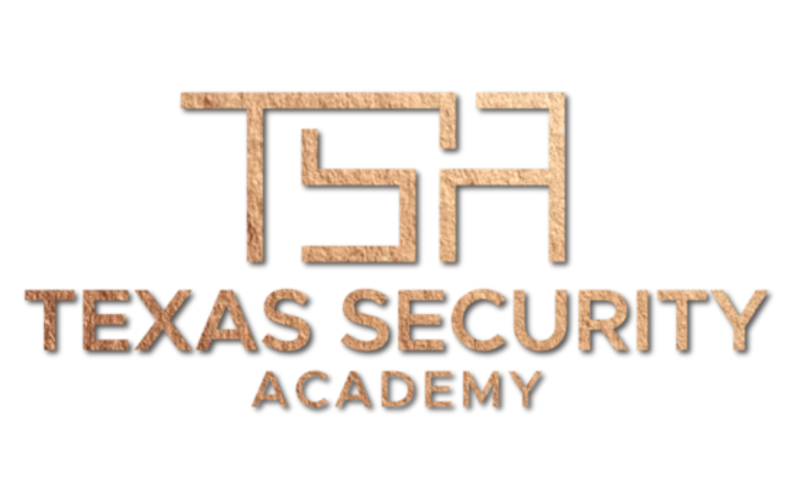Contact Texas Security Academy
For your Armed and Unarmed Security Online Training Courses in Texas
Start or Renew your security career with the required virtual training course security officers in Texas.
Contact Info
How can we help you?
Email Us:
Call Us:
Office Hours:
Need help? Our customer service team is here Monday–Friday, 9 AM–5 PM.
Feel free to access the website and all courses anytime—day or night—24/7.
Mailing Address:
300 S Hulen St, Fort Worth, TX 76109
Texas Security Training FAQs
Do I need to be a Texas resident to get a Texas security officer certification?
No, you don’t need to be a Texas resident to complete Texas security training or to apply for your certification. Anyone from any state can purchase courses with Texas Security Academy and receive a valid Texas training certificate.
Can I use a government-issued ID from another state for the Level III (Commissioned) course?
Does Texas offer reciprocity for security guard licenses from other states?
No, Texas does not have reciprocity agreements with other states for security officer licenses. Even if you hold a license elsewhere, you must shop courses and complete the Texas-approved training (Level II or III) to qualify for employment in Texas.
How much do security guards get in Texas?
Avg Salary
Security guards earn an average yearly salary of $29,640. Wages typically start from $21,850 and go up to $56,600. (2025)
I’m moving to Texas — what qualifications do I need to get security work here?
If you’re relocating, you’ll need to meet Texas DPS licensing requirements. This includes completing a Texas security officer training course, submitting fingerprints, and undergoing a background check. You can easily purchase courses online before your move to get a head start.
Do security guards count as police?
Security officers often protect specific locations, items or events. They aren’t members of law enforcement, so they work in a surveillance capacity. They watch for signs of a crime such as break-ins, thefts or fights.
How long is my course completion certificate valid?
Once you complete your Texas security training course, your certificate is valid for 30 days. You must apply for your license with DPS within that window to avoid re-taking the class.
What are the three types of licenses for Texas security guards/officers?
1. Level I — Non-Commissioned Security Officer (Entry-Level)
Unarmed position.
Often referred to as a “Level 1” or “basic” security guard.
Typically handles access control, patrol, and observation duties.
May work for a licensed security company but cannot carry a firearm or other defensive tools.
Training: Usually provided by the employer (basic orientation only).
Registration with DPS not required for in-house officers (depending on role).
2. Level II — Non-Commissioned Security Officer (Registered)
Unarmed but officially licensed by the Texas DPS Private Security Bureau.
Can work for a licensed security company.
Duties include patrolling, observing, reporting suspicious activity, and deterring crime.
Training required: 6-hour Level II course.
Must obtain a pocket card (license) from DPS.
3. Level III — Commissioned Security Officer (Armed)
Armed security officer authorized to carry a firearm and defensive equipment.
Can work in higher-risk environments like banks, gated communities, and corporate sites.
Must meet age and background check requirements.
Training required: 40-hour Level III course, including firearms qualification and defensive tactics.
Must have a Texas government-issued ID from any U.S. state.
Requires annual firearm requalification.
4. Level IV — Personal Protection Officer (PPO)
Provides bodyguard or executive protection services.
Can be armed or unarmed, but must already hold a Level III Commissioned License.
Works closely with individual clients rather than general site security.
Training required: 15-hour Level IV course (includes advanced situational awareness and protection tactics).
Must pass a psychological exam and FBI background check.
5. Other Specialized Roles
While the four levels are the main structure, Texas DPS also licenses specialized security roles, including:
Private Investigators
Alarm System Installers and Monitors
Locksmiths
Security Consultants
Electronic Access Control Specialists
Courier/Armed Transport Officers
